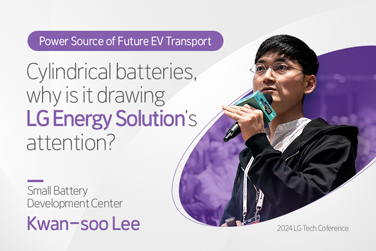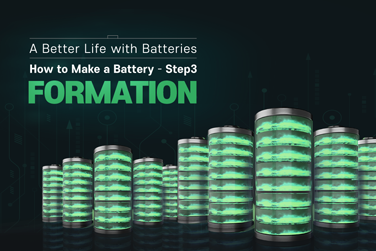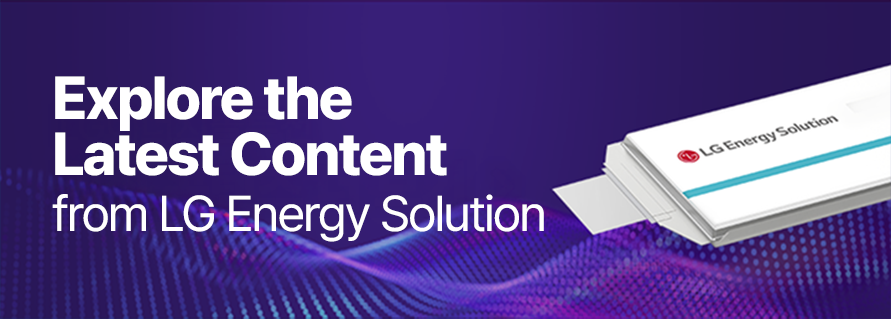There are many types of electrolytes. Among them, solid electrolyte is an electrolyte that is in a solid state. If it is commercialized, it can cut the number of the components from 4 to 3. Let’s delve into the solid electrolyte that can change the key components of batteries.
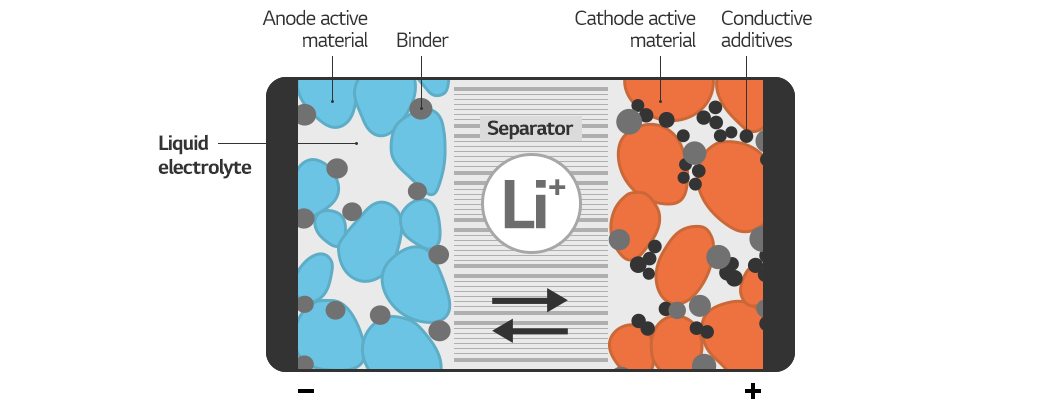
Characteristics of Lithium-ion Battery Electrolyte
Most electrolytes of lithium-ion batteries are in a liquid state. That is because liquid electrolytes have high ionic conductivity, a property that allows lithium ions to navigate the electrodes smoothly. For a battery with liquid electrolyte, a separator is placed to prevent direct contact between the cathode and anode and to improve stability.
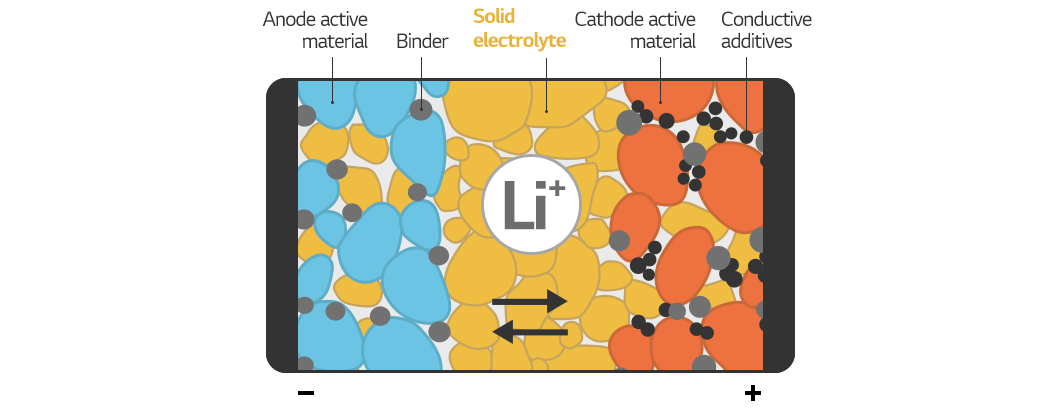
Separator-free Solid Electrolyte
However, a solid electrolyte eliminates the need for a separator. Unlike liquid electrolytes that consist of organic matter, solid electrolytes act like a separator themselves, removing the risk of side reactions or leakage caused by temperature changes or external shocks. Also, the absence of the liquid electrolyte and separator means there is more space to add other materials for increasing energy density, which is necessary for producing a high-density battery.
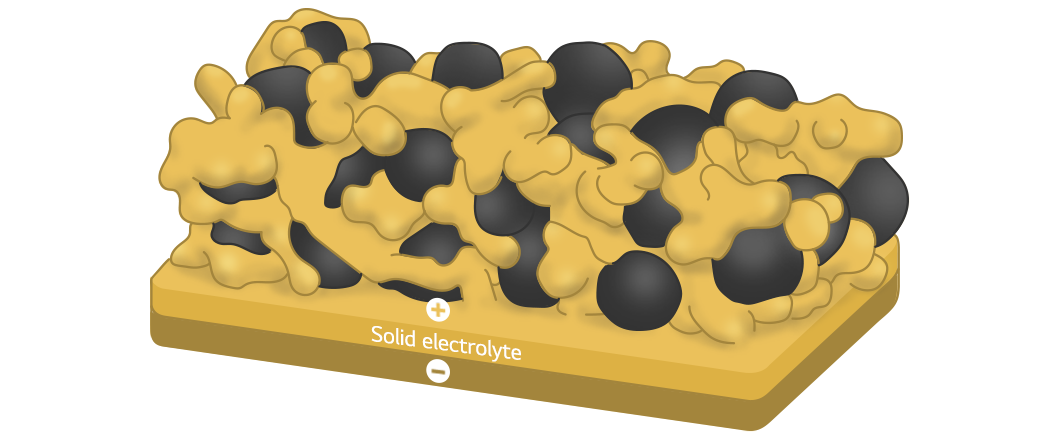
Solid Electrolyte and Ionic Conductivity
The fundamental role of a solid electrolyte is to offer a path for lithium ions. It has to be stable, but high lithium-ionic conductivity is a higher priority. In solid electrolytes, ions travel through solid lattices, instead of flowing. So, maximizing contact of the electrodes and minimizing resistance at the contact surface is necessary for a high ion conductivity.

Types of Solid Electrolytes
There are largely 3 types of solid electrolytes: Sulfide, oxide, and polymer. Sulfide electrolytes have high lithium-ionic conductivity as they can form a wider interface area between the electrode and electrolyte. Oxide electrolytes have lower lithium-ionic conductivity than sulfide electrolytes, but have high electrochemical stability. Last but not least, polymer electrolytes are versatile and have price competitiveness since they share similar properties and manufacturing process with liquid electrolytes.
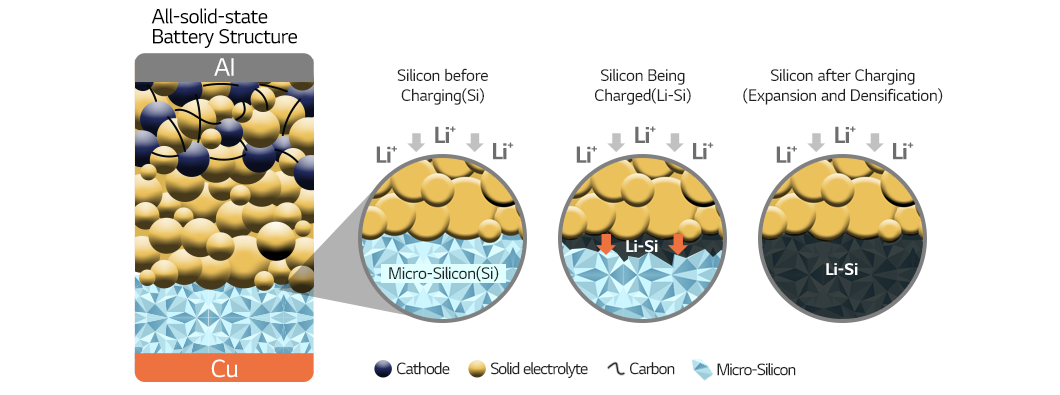
LG Energy Solution announced a plan to commercialize all-solid-state polymer batteries by 2026 and sulfide-based all-solid-state batteries by 2030. There was an achievement in its research: LG Energy Solution, in collaboration with University of California San Diego, developed an all-solid-state battery that is long lasting and works well at room temperature, a technology described in the Sept. 2021 issue of the journal Science*. Please support LG Energy Solution’s effort to commercialize all-solid-state batteries!
*Science (Volume 373, issue 6562)

